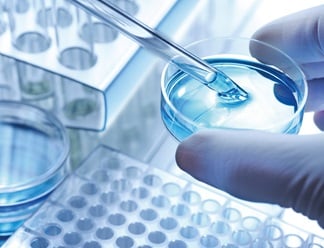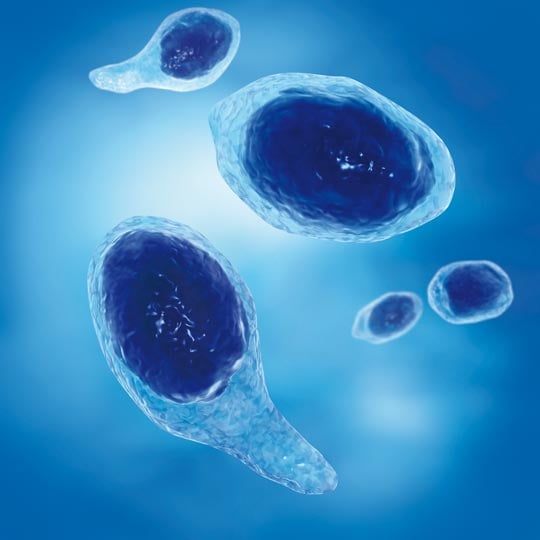HARTMANN SCIENCE CENTER

Clostridioides difficile (formaly Clostridium difficile) is an anaerobic, spore-forming, Gram-positive, rod-shaped bacterium belonging to the Clostridiaceae family.
The pathogen is often responsible for diarrhoea following a course of antibiotic therapy (antibiotic-associated diarrhoea).
A new Clostridioides difficile strain, the ribotype 027, is particularly virulent due to very high levels of toxin A and B production. The cause of the increasing virulence is supposed to be a genetic modification: the virulent C. difficile isolate misses a gene that usually delimits toxin release.
The main transmission path is direct or indirect contact with contaminated persons or objects.
» Necessary spectrum of antimicrobial activity
Sporicidal
